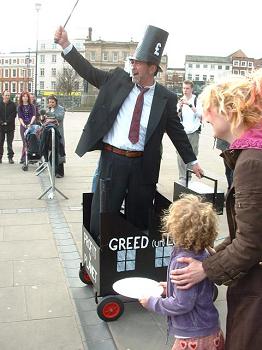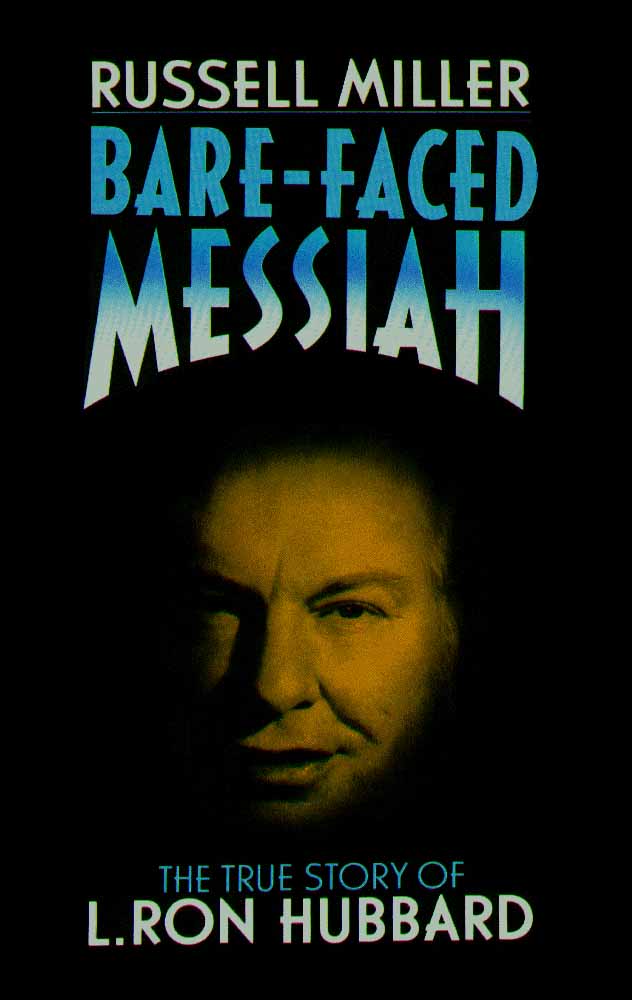

The first consignment of tea was due to go out to a group of people who are known are considered to be untouchable by upper caste Hindus. Because, they are the community that does all of the un-clean work, cleaning toilets, burying carcasses and so on: totally un-touchable. There is terrible discrimination against them. We found that they were also huge tea drinkers. And we said why don’t we send the tea to them? And we had a meeting of our tribal people. And asked them if some profit is generated through this transaction how do you think we should distribute it? How much should they get, how much should we get? Now, there were two hundred people at this meeting, and they turned around and said, are you mad? These people are so much worse off than us, they have trouble in every way, why should we take anything of their profit, and we’ve got the cost of our tea. We’ve got a fair price. If there is a surplus generated, let them keep it. Market sense? Not at all. (Thekaekara 2003: 9-10)
May seem early for this but I thought it if you want to get gifts from New Internationalist, etc might but good to get in just after Halloween...
Ethical present...just go for the tea that Stan Thekaekara is discussing abovehttp://www.justchangeuk.org/ You can buy it from New Internationalist, if you don't do tea, grow some mint and use instead but as an alternative to pg, this is the most ethical tea you can get, see New Internationalist
Here is what the wiki oracle says about Christmas,
In 274, Emperor Aurelian designated December 25 as the festival of Sol Invictus (the "unconquered sun"). Aurelian may have chosen this date because the solstice was considered the birthday of Mithras, a syncretic god of Persian origin. Mithras is often identified with Sol Invictus, although Sol was originally a separate Syrian god.
Here are some of the ecological impacts of Christmas in the UK
* One billion Christmas cards (17 for every man, woman and child);
* Six million Christmas trees;
* 4,200 tonnes of aluminium foil;
* 125,000 tonnes of plastic packaging;
* 80,000 tonnes of old clothes and other waste textiles;
* 83 square kilometres of wrapping paper (enough to cover an area larger than Guernsey). http://www.iema.net/news/envnews?cat=230&aid=3320
All of which seems like an argument for a holiday with Richard Dawkins....
Of course if your are Christian, you won't be having a Christmas tree,
[Jeremiah 10]
God and the idols....states
3 For the customs of the peoples are false:
a tree from the forest is cut down,
and worked with an ax by the hands of an artisan;
4 people deck it with silver and gold;
they fasten it with hammer and nails
so that it cannot move.
this is from.
Christmas presents
The very best, after the tea, is to dry your chillis you have been growing, carefully on the lowest heat in the oven (take care!), pot and label...perfect, perfect, perfect. Other nice garden stuff pickled or jamed will keep some people happy and doesn't involve air freight....
Set up a blog for a friend, if they want a blog!
Make your own open source recipe book.
Havana Club....we have to cut down on the peat based single malts, so this is a good alternative from Cuba. Buy it in Waitrose or the Coop...
Good beer guide http://shop.camra.org.uk/DisplayDetail.aspx?prodid=166&secid=0,
That's enough alcohol....subscriptions to 70 radical publications from INK http://www.ink.uk.com/
LRB, useless on green politics, but essential....sub from
New Internationalist have lots of interesting gifts including the tea here.
Cuba Solidarity, lots of goodstuff here
Permaculture, after a year or two you can grow christmas gifts Permaculture shop
Remember no shopping day is coming up
Treat this as a wiki, add your comments and I will roll them in,
by the way this is the Babylon passage about the tea to bring us back to where we started
Embedded markets and anti-capitalist states?
One approach to amphibious politics is to adapt markets as a way of beginning to move beyond the market. Markets can be embedded in society and state provision decentralised. A strong example comes from Stan Thekaekara, who worked with Indian adivasis, ‘first inhabitants’, a marginalized group kicked off their land by higher caste groups. Once they had reclaimed their land, they grew tea, sold directly to fair trade outlets in India and the UK. Face to face contact was made with working class communities in Easterhouse Glasgow who were sold ethical and cheap tea. Social preference rather than profit maximisation socialised economic activity:
In the present market economy, even in the Fair Trade model, the moment we put our tea into the market chain, at the first point of contact a price would be determined and we would lose ownership over the tea. And then the tea would take a life of it’s own. We are divorced from that tea. The ownership moves from us to somebody else. And then to somebody else and somebody else, ownership often changing till finally it ends up in a package with a pretty picture on it. And all along the way, the price also changes. And as the tea moves along the market chain the price is increasingly de-linked from the cost of production and the initial payment made to the producer. What you as a consumer pay for your tea has nothing to do with what I as a producer got for that tea. (Thekaekara 2003: 9)
Instead of being ‘divorced from that tea’, the tea was produced and exchanged under conditions determined by the farmers. The project erased distinctions between the global and the local by being controlled by the producers who built relationships with the consumers based on equity and respect:
The first consignment of tea was due to go out to a group of people who are known are considered to be untouchable by upper caste Hindus. Because, they are the community that does all of the un-clean work, cleaning toilets, burying carcasses and so on: totally un-touchable. There is terrible discrimination against them. We found that they were also huge tea drinkers. And we said why don’t we send the tea to them? And we had a meeting of our tribal people. And asked them if some profit is generated through this transaction how do you think we should distribute it? How much should they get, how much should we get? Now, there were two hundred people at this meeting, and they turned around and said, are you mad? These people are so much worse off than us, they have trouble in every way, why should we take anything of their profit, and we’ve got the cost of our tea. We’ve got a fair price. If there is a surplus generated, let them keep it. Market sense? Not at all. (Thekaekara 2003: 9-10)











